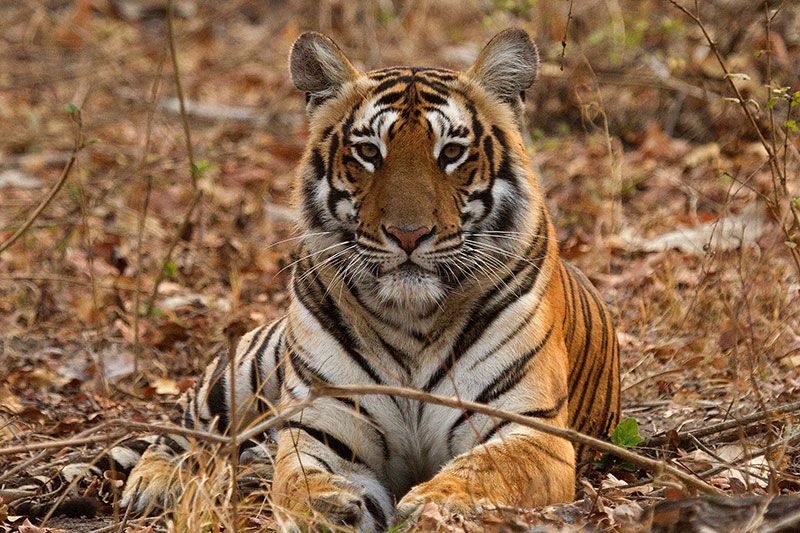Wild Shaale schools teach how to live alongside wildlife
Livelihoods at risk
Living alongside nature is a concept that many of us, particularly in the western world, cannot really understand. We may be annoyed when a slug eats our newly sprouting lettuce. Or bothered by a wasp when we’re having a picnic. But our interactions with wildlife are both limited and pale in comparison with those of people living in other parts of the world. Now imagine how much more devastating and scary it would be if an elephant trampled your paddy field. Or you risked coming across a leopard on your way to school. Your family, your food and your livelihoods are all potentially at risk, every day.
Dr. Krithi Karanth is a wildlife expert in India, the Chief Conservation Scientist at the Centre for Wildlife Studies (CWS). She knows these challenges that the rural community face on a daily basis. Living alongside wildlife is an entirely different experience to ours here in the UK. We may think they’re lucky to have tigers, elephants and a fantastic array of birds on their doorstep. And so do they, but managing certain interactions with wildlife that can lead to conflict is an ongoing struggle. Krithi understands this only too well and so she and her team are trying to address the root of the issue. They are working with teachers and children in schools to build interest and resilience in vulnerable children in the short term, in the hope that it will foster human-wildlife coexistence in communities in the long term.
Wild school
The programme is called Wild Shaale. It means ‘wild school’ and is the brainchild of Dr. Karanth at the (CWS) in India. PTES is delighted to have provided critical funds to run this crucial project. Over the past 18 months, the team has been visiting schools, designing lessons that fit within the curriculum and working with teachers and educators to roll out a programme across Maharashtra.
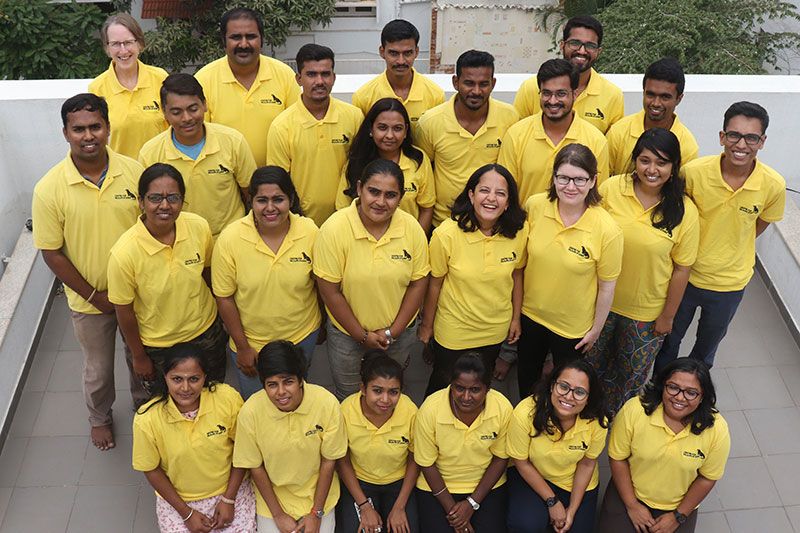
The Wild Shaale team
Teaching children why conflict occurs and how to avoid it is key. The children have been equipped with reliable knowledge about their surrounding biodiversity and wild spaces, allowing them to make informed behavioral decisions in the future. Krithi and her team have smashed their original target of 25 schools and have, amazingly, rolled out their programme in 124 schools around Melghat, Tadoba and Pench Tiger Reserves. The CWS team’s of two project coordinators and six educators first step was to identify all the schools in the vicinity of the reserves, find out how many children of each age attended them and what levels of human-wildlife interaction in these areas were. They then set up field bases for their staff so that they would be available for many weeks and could provide a really comprehensive teaching programme for the children, and their teachers. Their reach extended to 6,200 children aged 10-13 in the schools they visited.
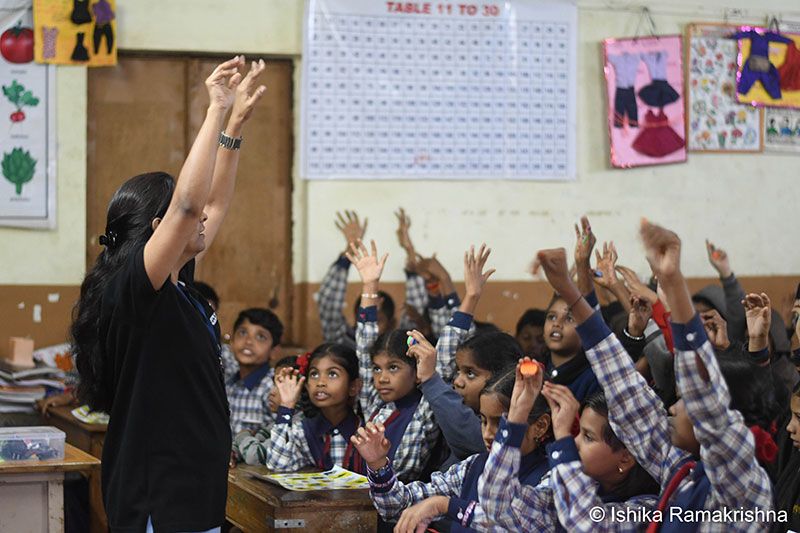
Class in session. Image by Ishika Ramakrishna 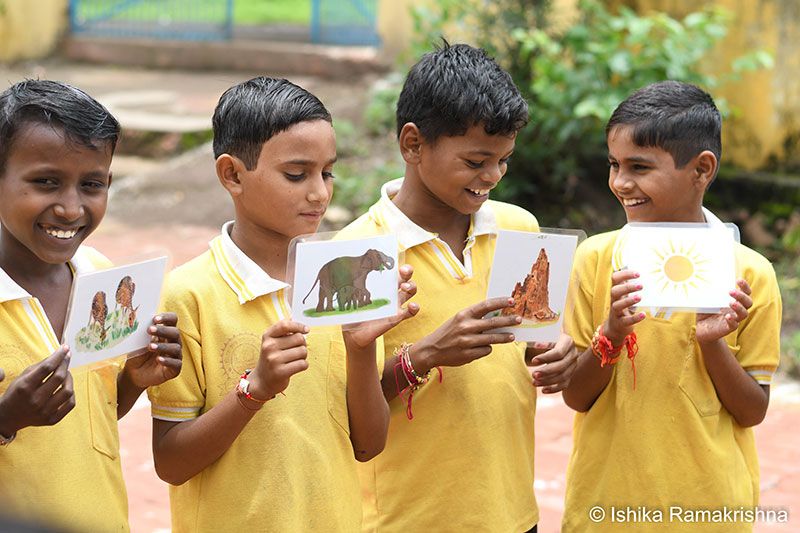
Web of life activity. Image by Ishika Ramakrishna
Big cat lessons
The big cat lessons involved getting the children to make their own leopard and tiger masks and become the animals. They learned about the behaviour, emotions, diet, survival skills and biology of these big cats. To understand how well the lessons progress and how the children’s understanding of and empathy towards wildlife changed, the team carried out short surveys before and after the classes. With this evidence the team is not only confident that their work is truly having an impact, but they’re also able to continually tweak parts of their programme to make sure it’s as good as it can be.
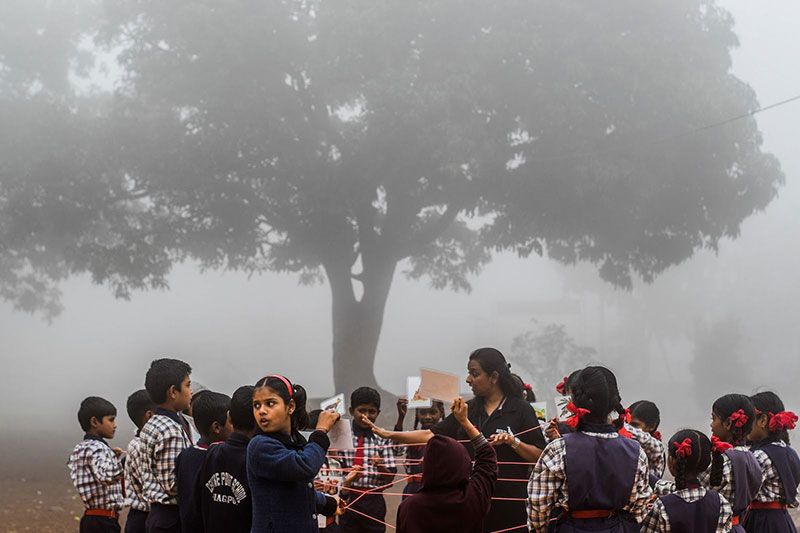
Web of life activity. Image by Ishika Ramakrishna
Discussing the importance of wildlife
Each class focuses on a different topic. The children learn about wildlife, the environment, living with animals and the future of wildlife. They play elephant foraging games, create food webs and learn to understand the emotions of animals. How much food does a single elephant need to survive? How do all the wild animals and plants depend on one another? What is the role of human beings in an ecosystem? Children learn the answers to these questions as well as about living with animals and about their needs through interactive activities like the web of life. Wild Shaale aims to provide children with food for thought. By discussing the importance of wildlife, their needs, the threats they face and how we can coexist with them peacefully, they encourage dialogue among the children. We hope these young stewards extend this dialogue back in their homes and villages as well.
We are delighted that PTES funding has helped grow the Wild Shaale programme and hope that it will continue to expand. The long-term aim is to have environmental education programmes established in schools across the country, bringing high-impact learning about wildlife to schools around all crucial conservation zones in India.
Thank you for helping us fund this vital work to save big cats in India.
If you’d like to support other areas of our work, please donate or set up a direct debit here today.
Thank you.

